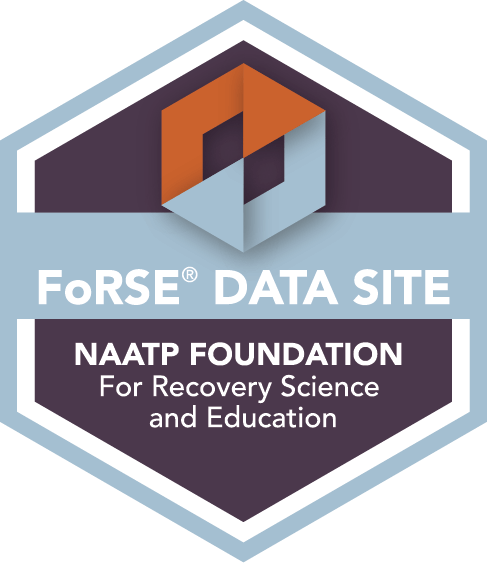Depression in teenagers is a growing concern across the United States. According to the National Institute of Mental Health, approximately 20% of adolescents will experience at least one major depressive episode before reaching adulthood. The CDC reports that in 2021, nearly 42% of high school students felt persistently sad or hopeless, a significant rise compared to previous years. This alarming trend highlights the urgent need for proper awareness and treatment for teenage depression.
In Illinois specifically, the 2021 Illinois Youth Survey showed that 31% of high school students reported feeling so sad or hopeless almost every day for two or more weeks that they stopped doing some usual activities. Depression is affecting teens at an increasing rate due to academic pressures, social media influence, societal instability, and post-pandemic mental health challenges. Recognizing this growing issue is crucial for parents, educators, and communities to ensure adolescents receive timely and effective support.
Depression manifests differently in teenagers compared to adults. While adults may appear consistently sad or withdrawn, teens often exhibit irritability, anger, and frustration, which can be mistaken for typical adolescent behavior. Understanding that depression is a serious medical condition, not a character flaw or personal weakness, is the first step toward seeking effective treatment.
What Causes Depression in Teens?
Why Do Adolescents Get Depression?
There is no single cause of depression in teens. Instead, it results from a complex combination of biological, psychological, and environmental factors.
- Biological Factors: Genetics plays a significant role in depression. Teens with a family history of depression or other mood disorders are more susceptible. Additionally, imbalances in neurotransmitters such as serotonin and dopamine, which regulate mood and emotions, can lead to depressive symptoms.
- Psychological Factors: Adolescence is a period of significant emotional development. Teens who struggle with low self-esteem, extreme self-criticism, or who internalize stress are at a higher risk. Traumatic experiences, such as abuse, neglect, or the loss of a loved one, can also trigger depressive episodes.
- Environmental Factors: Stressful life events like divorce, family financial problems, bullying, academic pressure, or social isolation often contribute to the onset of depression. The digital age and constant social media exposure also play a role, as teens may feel inadequate or left out compared to their peers online.
Understanding these causes helps parents and professionals tailor treatment to address not only the symptoms but also the underlying factors contributing to a teen’s depression.
How Can I Tell if My Teen Is Depressed?
Signs and Symptoms of Depression in Teens
Recognizing depression in teens can be challenging, as symptoms often overlap with normal developmental changes. However, some warning signs include:
- Persistent sadness, hopelessness, or emptiness
- Irritability, anger, or hostility
- Frequent crying spells
- Withdrawal from friends and family
- Loss of interest in hobbies or activities
- Changes in eating and sleeping patterns
- Fatigue or lack of energy
- Difficulty concentrating, thinking, or making decisions
- Feelings of worthlessness or guilt
- Restlessness or agitation
- Thoughts of death or suicide
It is crucial not to dismiss these signs as “just teenage moodiness.” If your teen exhibits multiple symptoms for more than two weeks, professional evaluation is recommended.
Risk Factors for Major Depression
- Family history of depression or other mental health disorders
- History of trauma or abuse
- Chronic medical conditions
- Substance use or abuse
- LGBTQ+ youth facing discrimination or rejection
- Learning disabilities or academic struggles
- Poor peer relationships or bullying
- Low self-esteem or perfectionistic tendencies
By understanding these risk factors, parents and caregivers can better identify when professional support may be needed.
Insurance Verification




Effects of Depression on Teens and Adolescents
One of the most concerning outcomes is suicide. According to the CDC, suicide is the second leading cause of death among people aged 10-24 in the United States. Depression is a major contributor to suicidal ideation in teens, making early detection and treatment critically important.
How is Depression Diagnosed in Teens?
- Clinical Interview: The therapist or psychiatrist will ask about symptoms, duration, and severity, as well as family and personal medical history.
- Behavioral Observations: Observing mood, affect, and behavior during sessions provides valuable diagnostic clues.
- Standardized Questionnaires: Tools such as the PHQ-9 modified for adolescents help assess depressive symptoms systematically.
- Collateral Information: Input from parents, teachers, and other caregivers helps create a holistic picture of the teen’s mental health.
Because teens may struggle to express their emotions, parents must communicate openly with healthcare providers and encourage their child to share honestly during assessments.
Depression Treatment for Teens
- Cognitive Behavioral Therapy (CBT): CBT helps teens identify negative thought patterns and replace them with healthier, more realistic ways of thinking. It is one of the most effective treatments for adolescent depression.
- Dialectical Behavior Therapy (DBT): DBT teaches emotional regulation, distress tolerance, and interpersonal effectiveness, benefiting teens with depression, especially when self-harm is involved.
- Family Therapy: Involving family in therapy sessions improves communication, reduces conflict, and helps parents learn how to support their teen effectively.
In some cases, antidepressant medications such as SSRIs (Fluoxetine, sertraline) may be prescribed. Medication should always be administered under close psychiatric supervision due to potential side effects and the need for monitoring, especially during the initial stages of treatment.
For teens needing structured support without full hospitalization, a Teen Intensive Outpatient Program (IOP) offers a balanced solution. At Northern Illinois Recovery Center’s adolescent intensive outpatient program, adolescents receive targeted therapy, psychiatric evaluation, group sessions, and family support while continuing to live at home and attend school. This program fosters recovery in a safe environment while allowing teens to practice skills in their daily lives.
Lifestyle and Holistic Approaches
- Regular exercise, which releases endorphins to improve mood
- Balanced nutrition to stabilize energy levels
- Adequate sleep for cognitive and emotional regulation
- Mindfulness or meditation practices to reduce stress and anxiety
- Creative outlets such as music, art, or journaling to express emotions safely
Combining these approaches with therapy and medication, when necessary, provides the best outcomes for teenagers struggling with depression.
How Can I Help My Teen With Depression?
- Listen Without Judgment: Create a safe space where your teen feels heard and understood. Avoid minimizing their feelings or offering unsolicited solutions.
- Encourage Professional Help: Remind them that seeking help is a strength, not a weakness.
- Stay Involved: Attend therapy sessions when appropriate, stay in touch with school counselors, and maintain open communication with their treatment team.
- Promote Healthy Habits: Model and encourage balanced nutrition, exercise, and sufficient rest.
- Monitor for Warning Signs: Be vigilant for signs of worsening depression or suicidal thoughts and seek immediate help if needed.
Your compassion, patience, and consistent support can make a powerful difference in their recovery journey.
Depression Treatment for Teens is Available at NIRC
Don’t wait for depression to take over your teen’s life. Reach out today to learn how our evidence-based programs can empower your teen toward a brighter, healthier future.





